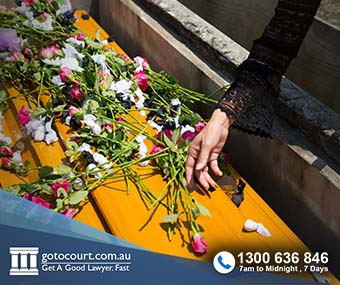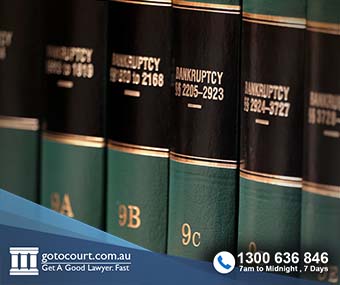Call our lawyers
now
or,
have our lawyers
call you
Tenant Rights and Obligations (Tas)
Updated on Jan 12, 2023 • 5 min read • 403 views • Copy Link
Tenant Rights and Obligations (Tas)
In Tasmania, a tenant has certain rights and responsibilities by virtue of the Residential Tenancy Act 1997. Tenants who enter into a residential tenancy agreement incur obligations and legal protections, although a tenancy agreement cannot contravene the minimum standards in the Tenancy Act.
Starting a tenancy in Tasmania
A tenancy agreement is a binding contract between the tenants listed in the agreement and the landlord. It is highly recommended that a new tenant signs a written agreement before moving into a rental property. The benefits of such an agreement flow to both tenant and landlord. In the case of flatmates, all tenants should be included on the lease. In that case, if one tenant leaves before the lease expires, they are still responsible for the rent and the condition of the property until the lease ends. In that case, the remaining tenants must obtain the landlord’s written permission before moving other tenants into the property.
Entry condition report
A landlord in Tasmania must give an entry condition report to a new tenant at the commencement of a tenancy. This report details the condition of the property at the start of the lease. Any existing damage to the property should be documented, as the tenant is only obliged to maintain the property to the previous standard. The tenant has only two days to review the report and confirm that it accurately notes the state of the property. The tenant should make a further note on the report of any damage that was missed. If the tenant does return the document to the landlord or real estate agent, then the original condition report is accepted as a true reflection of the state of the property.
Bond and rent
A landlord in Tasmania can request a bond from a tenant of no more than four weeks of rent. The amount of the bond is specified in the tenancy agreement. A landlord can increase the rent during the tenancy period under certain conditions, but the bond cannot be increased during the tenancy. The tenancy agreement stipulates when the rent is due and the consequences if the tenant does not pay on time. For instance, it is a breach of the tenancy agreement for the rent to be in arears. When the rent is unpaid, the landlord can issue the tenant with a “Notice to Vacate”. If the tenant does not resolve the matter after receiving three valid Notices to Vacate within a 12-month period, they must vacate the premises.
Quiet enjoyment of property
A tenant in Tasmania has a right to enjoy their property without undue interruption from the landlord. The landlord must not interfere with the privacy, peace or comfort of the tenant. While there is no definite list of unlawful interferences, there are some common examples of the landlord infringing on the tenant’s rights, such as:
- attempting to evict a tenant without legal cause;
- using part of the premises (such as a garage for storage) when this was not part of the lease;
- failing to carry out necessary repairs;
- blocking access to the premises;
- making excessive noise; or
- entering the premises without authorisation or due cause.
Landlord entry
A landlord can only inspect the premises under certain circumstances. The best option is for the tenant and landlord to agree on a mutually convenient time for entry. At any point, the tenant can waive the right to notice, and the landlord can enter the premises with no notice in an emergency (such as a house fire). Routine inspections can be carried out every three months, but the landlord must provide 24 hours notice. The landlord may also enter the property by giving 24 hours notice for required maintenance or inspection of maintenance, and when the tenant has breached the agreement. When the landlord is showing the property, they must give at least 48 hours notice.
Pets
A tenant in Tasmania has limited rights to keep a pet in rental accommodation. A tenant must ask permission to keep any type of pet in their rental home. Currently, only 12.5% of rental properties allow pets in Tasmania. Keeping a pet without permission is a breach of the lease agreement, although this does not apply to guide dogs.
Tenant obligations
Although a tenant has a right to quiet enjoyment and use of the rental property, it is a breach of their lease if they create a nuisance for their neighbours, such as by making excessive noise. It is also a breach of a tenancy to use a rental property for illegal purposes by cultivating illegal drugs or operating an illegal casino or brothel. Tenants are also responsible for any breach of the lease committed by a guest on the property. For instance, the tenant is liable for damage caused by a visitor, family member, sub-tenant or tradesperson hired by the tenant. A tenant is not typically liable for damage caused by trespassers or burglars.
Ending a tenancy
A tenant with a fixed-term tenancy agreement has greater protections under the law than a tenant with a verbal periodic agreement. A tenant on a fixed-term tenancy agreement cannot be evicted prior to the end of the agreement unless the tenant has breached the terms. However, a tenant on a non-fixed term lease can be asked to vacate with 42 days notice. At the end of a tenancy, the tenant must remove all their belongings and thoroughly clean the premises. They should fill out an exit condition report and provide a copy to the landlord. The landlord can claim money from the bond if the tenant has not brought the property up to the original entry condition. When there is a dispute over the bond, the tenant or landlord can ask for assistance from the Residential Tenancy Commissioner.
Go To Court Lawyers can answer any questions about tenant rights and obligations in Tasmania. Please contact our TAS legal advice hotline on 1300 636 846 today for legal advice or representation on any matter.


Affordable Lawyers
Our Go To Court Lawyers will assist you in all areas of law. We specialise in providing legal advice urgently – at the time when you need it most. If you need a lawyer right now, today, we can help you – no matter where you are in Australia.How It Works








1. You speak directly to a lawyer
When you call the Go To Court Legal Hotline, you will be connected directly to a lawyer, every time.


2. Get your legal situation assessed
We determine the best way forward in your legal matter, free of charge. If you want to go ahead and book a face-to-face appointment, we will connect you with a specialist in your local area.


3. We arrange everything as needed
If you want to go ahead and book a fact-to-face appointment, we will connect you with a specialist in your local area no matter where you are and even at very short notice.















